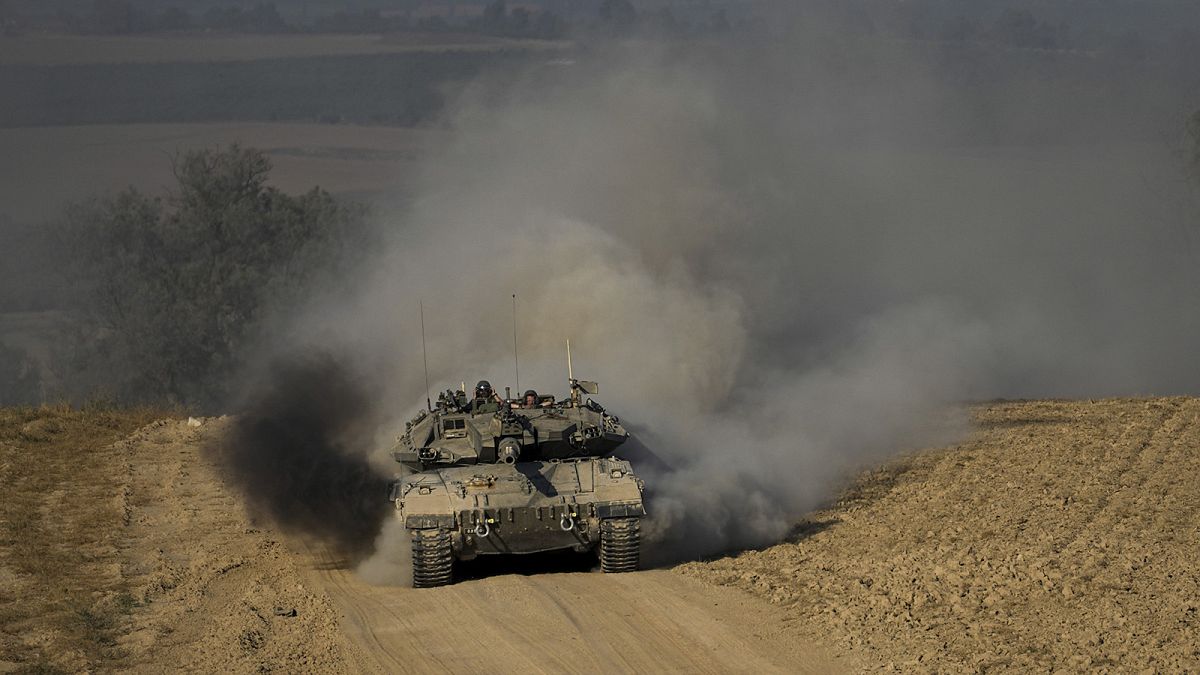In Washington, Israeli Defence Minister Yoav Gallant met with US Secretary of State Antony Blinken to discuss the shift to a new phase of the war in Gaza. This phase, dubbed “Phase C” by Israel, involves low-intensity fighting, targeted airstrikes, the withdrawal of forces, the creation of a buffer zone near Gaza’s border, and the search for an alternative to Hamas’ rule in the region. State Department spokesman Matthew Miller highlighted the importance of developing a strong post-war plan during their discussions on Monday. Israeli Prime Minister Benjamin Netanyahu recently expressed his willingness to agree to a partial ceasefire deal that wouldn’t bring an end to the conflict. This stance may hinder efforts by mediators working to resolve the crisis.
During this crucial phase of the Gaza conflict, it is imperative that both Israeli and US officials collaborate on a comprehensive plan for addressing the aftermath of the fighting. Blinken emphasized the need for a robust post-war strategy to ensure a lasting defeat of Hamas and the establishment of Palestinian-led governance in the region. Netanyahu’s stance on only accepting a partial ceasefire highlights the challenges in reaching a resolution that satisfies all parties involved in the conflict. The divergence in opinions between Israel and Hamas, as well as international players like the EU, adds further complexity to the situation.
Netanyahu’s commitment to eliminating Hamas and continuing the war even after a pause raises doubts about the viability of ongoing ceasefire negotiations. The three-phased plan for a truce, which includes the release of hostages and a prisoner exchange, faces opposition from Hamas unless Israel agrees to a full withdrawal from Gaza. EU High Representative for Foreign Affairs Josep Borrell has highlighted the dire humanitarian situation in Gaza and advocated for sanctions against both Hamas and violent Israeli settlers. Italy’s defense minister, Guido Crosetto, has also criticized Netanyahu for his reluctance to consider a ceasefire, urging him to prioritize Israel’s well-being for the future.
The ongoing conflict between Israel and Hamas in Gaza underscores the complexities of finding a lasting solution that addresses the root causes of the crisis. The differing perspectives and priorities of key stakeholders, including Israel, the US, the EU, and Hamas, present significant challenges to reaching a comprehensive ceasefire agreement. As Netanyahu remains firm on his goal of eliminating Hamas, the prospects for a swift resolution to the conflict appear increasingly uncertain. The humanitarian toll of the war in Gaza continues to escalate, necessitating urgent action from the international community to alleviate the suffering of civilians caught in the crossfire.
In light of the stalled ceasefire negotiations and escalating tensions in Gaza, it is essential for all parties involved to prioritize diplomacy and dialogue in search of a peaceful resolution. The US and other international actors must ramp up their efforts to facilitate constructive dialogue between Israel and Hamas. A comprehensive ceasefire agreement that addresses the core concerns of both sides, includes provisions for humanitarian aid, and paves the way for sustainable peace in the region is urgently needed. As the conflict in Gaza enters a critical phase, the global community must remain vigilant in its support for a peaceful resolution that safeguards the rights and well-being of all those affected by the crisis. Only through concerted diplomatic efforts and a commitment to dialogue can a lasting ceasefire and sustainable peace be achieved in Gaza.
The visit of Israeli Defence Minister Yoav Gallant to Washington and his meetings with US officials signal a crucial juncture in the Gaza conflict, as stakeholders seek to transition to a new phase of the war. The need for a comprehensive post-war plan, as underscored by Blinken, highlights the importance of addressing the long-term implications of the conflict and finding a sustainable resolution. Prime Minister Netanyahu’s stance on a partial ceasefire poses challenges to the ongoing peace negotiations and raises concerns about the prospects for a lasting resolution. As the conflict in Gaza continues to evolve, it is imperative for all parties involved to prioritize diplomacy, dialogue, and cooperation in pursuit of a peaceful resolution that safeguards the rights and well-being of all those affected by the crisis.































